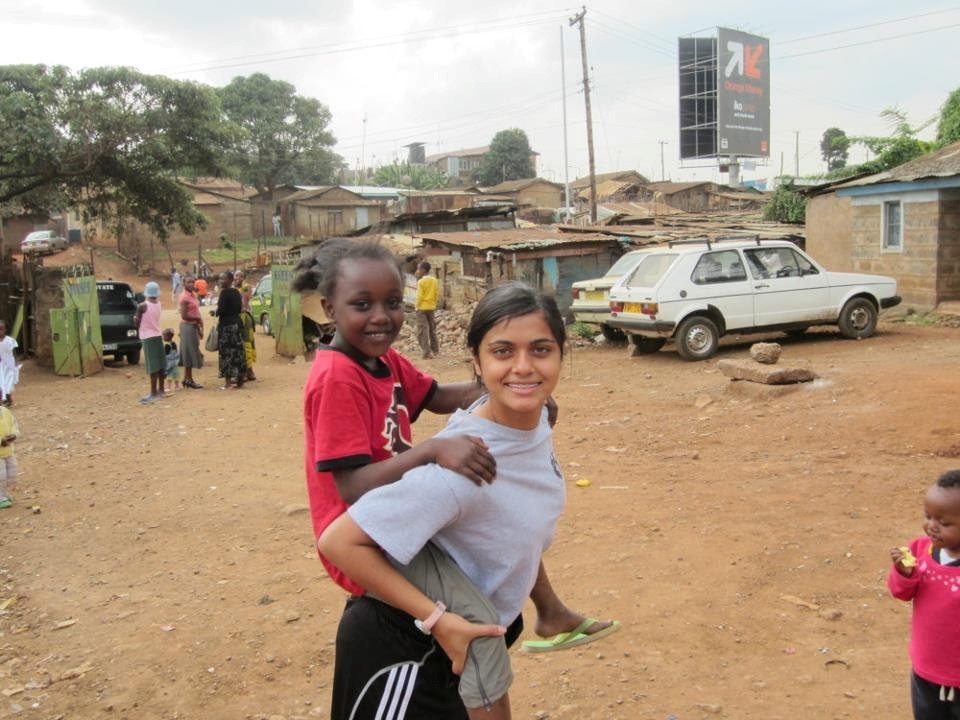Poverty Alleviation: The Future Muhammad Yunus

Rochelle is presently pursuing her master’s degree and focuses on spending her time on poverty alleviation in the world.
Rochelle, thanks for being willing to be interviewed on my blog regarding Millennials. Please tell my audience a little about you.
My name is Rochelle and I am 24 years old. I am half Tamil (my mom is from Karampon, Kayts, Sri Lanka) and half English (my dad is from Southampton, England). I am the youngest of four siblings; I have three older brothers. I am a Christian; my hope and my identity are found in Jesus Christ. I love to travel, learn languages, volunteer to reduce poverty, learn about different cultures, play sports, and play music.
What is so exciting about you that I need to know?
Ever since I was a kid, I’ve had a passion for poverty alleviation. I would always see commercials on television of kids in Africa asking for help. Growing up, my family sponsored a girl in Zambia named Sharon. In grade 7, my class speech was on the genocide in Darfur, Sudan. I held a school fundraiser to raise money for the victims of the war. We kept an empty water jug near the school kitchen where people could spare their change after purchasing milk cartons. The fundraiser was called ‘Change for Change’.
In 2011, I had a burning desire to go to Africa and see things for myself. My parents told me “you can only go if you pay for the trip yourself”. In other words, they thought it wouldn’t happen since I didn’t have a source of income. And so, I got a little creative….and held a fundraiser dance. I rented out a banquet hall and my friends and I invited everyone we knew. Tickets were sold for $10 each. I raised enough money to travel to Kenya with my brother, Nick.
We registered with ‘International Volunteer Head Quarters’, a global organization that connects volunteers with local organizations to reduce poverty. They connected us to an organization called ‘the Fadhili Community’ in Kibera, Kenya. Kibera is one of the largest slums in Africa. We were volunteers in an HIV program. We visited many people living with HIV; we listened as they shared their stories and we supported them. One of our tasks was to pack maize and beans into bags to deliver to them. Many of these individuals could not support themselves; they relied on the food that the Fadhili Community gave them. It really broke my heart to hear their poverty stories and witness the struggles they endured.
In 2013, I helped build a house for a family in Santa Fe, Argentina with an organization called “Un Techo para mi País” which translates to “A Roof for my Country”.
My passion for poverty alleviation remains and I plan to continue looking for ways to make a sustainable impact in the lives of those who are less fortunate.
Talk to me about your passion for music.
I started playing the piano when I was about 7. I took the classical route – I completed the Grade 8 Royal Conservatory of Music. In 2011, I started playing the keyboard in my church band (Warden Full Gospel Assembly). This got me interested in contemporary piano. I started taking contemporary lessons and began songwriting. I wrote a couple of songs but never considered myself a ‘songwriter’.
Years later, I started singing my song at work and my coworker showed interest in my music. He lent me his iRig and showed me how to use GarageBand. Together, we produced the song entitled ‘Hope Song’.
https://soundcloud.com/rochelle-white-617379510/hope-song-2018-09-13-824-am-1
Later, I started a music collaboration for mental health. Two friends and I added our own lyrics to an instrumental track I composed. The song is about supporting someone who is struggling with mental health.
https://soundcloud.com/rochelle-white-617379510/music-collaboration
The first step to becoming a songwriter is to call yourself a songwriter. Recently I brought a guitar and plan to learn how to play. Learning the basics has given me a greater appreciation for guitarists, to say the least.
Help me understand your experience growing up as a mixed-race kid?
Although I am familiar with my background and cultural traditions, I am not as in tune as I would like to be. All my cousins on my mom’s side can speak Tamil except for us, mixed kids.
Growing up, I definitely missed out on a lot of jokes, especially at family parties – there have been so many moments where my mom, cousins, aunts, and uncles would laugh hysterically and I would have to wait for someone to clue me in. But let me tell you, jokes are usually not as funny when they are translated into English and explained.
I am beginning to learn Tamil, whereas my cousins are practically fluent. Recently, I took an introductory Tamil course. I learned how to write the letters of the alphabet, how to pronounce them, and how to write at a very basic level. What I realized is that Tamil is a language you learn at home – not by studying. If you don’t learn Tamil from your parents while growing up, it is very difficult to learn. Why? Because it is hard to find a textbook or app that can clearly explain the rules of the language. There’s no Rosetta Stone for Tamil, no Duolingo for Tamil, and no grammar books that I have found. Lately, my mom has been teaching me. My mom will say something in Tamil and write it down for me in Tamil, that way I can save it for later and memorize it on my own.
I have not been to Sri Lanka, but I’ve been to England a few times…. Beer, football, Coronation Street, a cup of tea, pinch and a punch, and attempting to put on a British accent …. That’s my British side in a nutshell
I want to know about your passion for mental health.
I am really passionate about mental health. I give talks on mental health at high schools and universities in the GTA through an organization called ‘Jack.org’. I think it is difficult for our generation to be vulnerable and open with each other… a lot of times I feel people wear a mask, hiding their thoughts and feelings.
Nowadays, 1 in 4 people suffer from mental illness…
Mental illnesses are often not visible and many of us have friends that suffer from mental illnesses yet we don’t even know it. One thing I find is that people minimize mental illnesses – assuming what it’s like or what it feels like … thinking their experience is not so bad…this is detrimental for those who are suffering will not feel understood and those supporting will not support effectively.
Never judge, always listen, don’t offer advice, be available, ask the hard questions, follow up and ask how they’re doing, and don’t share your story when they’re sharing theirs because they are not equivalent
What are some things that previous generations missed out on?
Technology and social media.
The fact that we can effortlessly deposit a cheque, order food, get an Uber, or pay for something using Apple wallet…. Phones have basically made us lazy and efficient at the same time. The fact that our credit card details are saved on our phones results in spending more money. Fact that I can message someone on Facebook that I haven’t seen in 10 years, or view someone’s Instagram story to know what they’re up to. When was the last time you called someone? We rather send a text than make a phone call. We don’t remember anyone’s phone number anymore; we wouldn’t remember anyone’s birthday if it wasn’t for Facebook. We can google absolutely anything – and our phones are basically always attached to us – so we basically are know-it-alls… except we choose to google the silliest things and waste 4 hours a day on our phones according to the ‘screen time’ app.
Tell me a good joke.
What did one hat say to the other? You stay here. I’ll go on ahead.


God is using you to be a mighty woman of God. We are very blessed and highly favored. Thank you Jesus.
Hey, I want my iRIG back!!! LOL